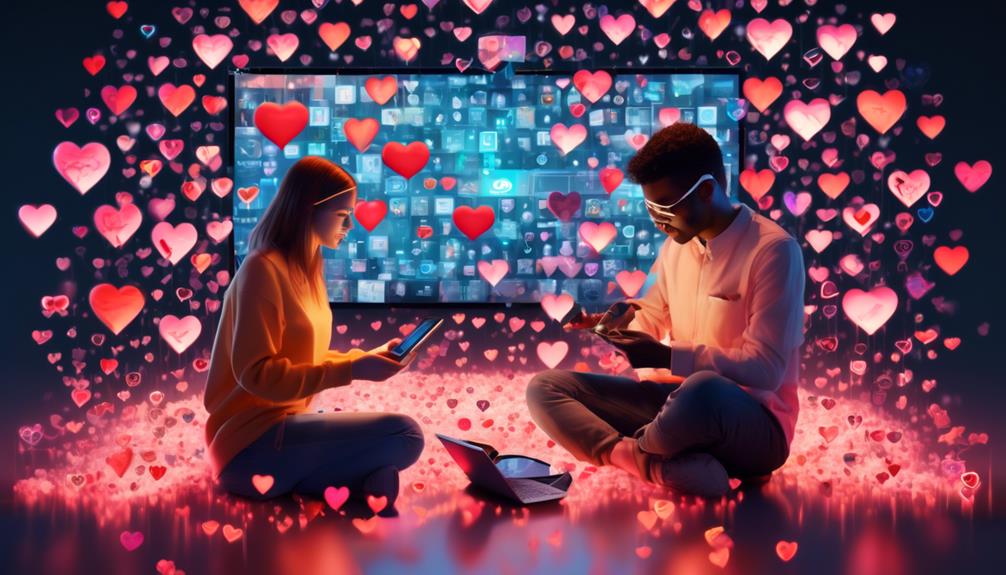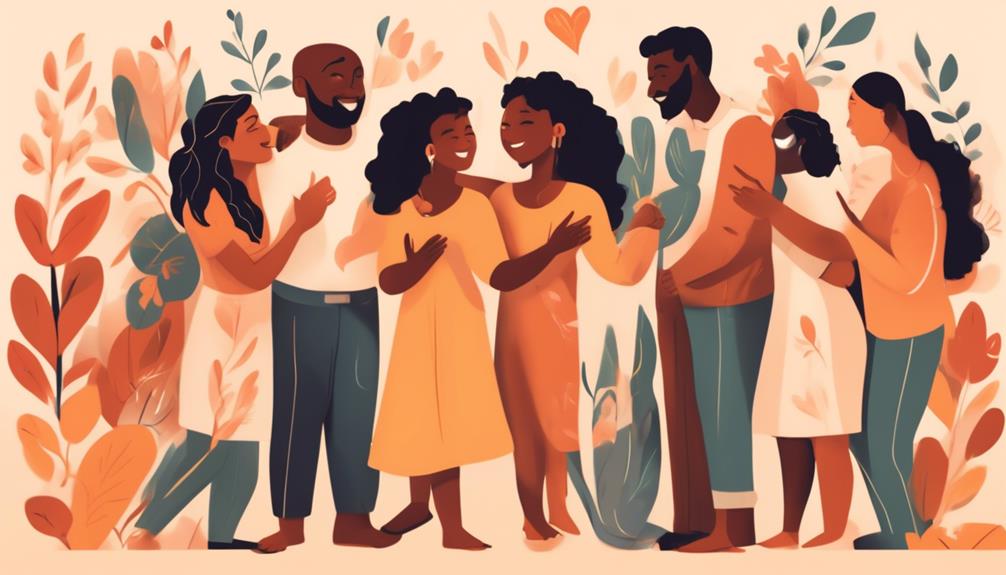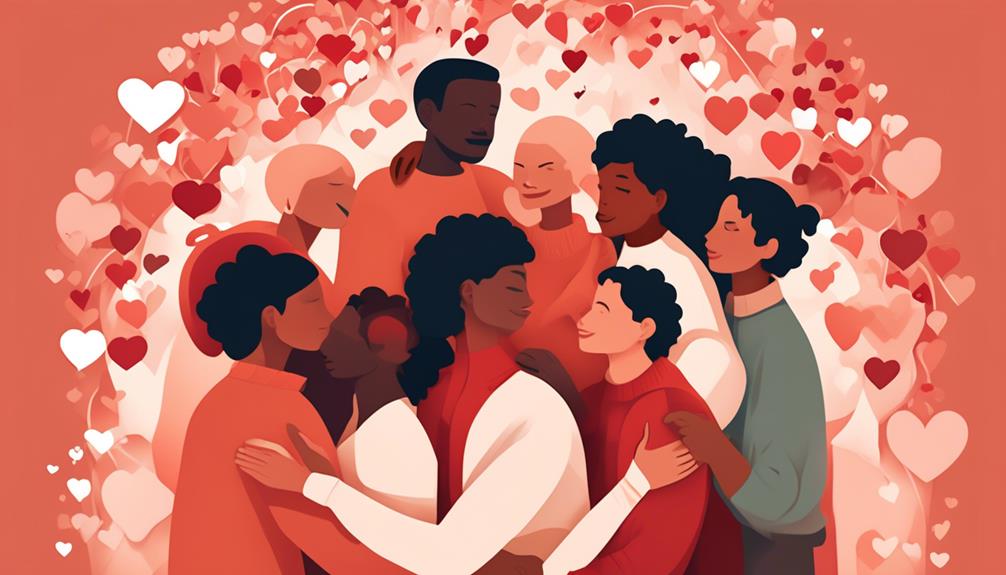Redefining Love in Modern Relationships: Exploring New Perspectives and Dynamics
Have you ever wondered how love has changed in the age of technology and shifting societal norms?
In the fast-paced world we live in, where communication is instant and relationships are formed and dissolved with a swipe, the definition of love seems to be constantly evolving.
But what does this mean for modern relationships? How do these changes impact the way we connect with one another and the expectations we have for love?
As we navigate the complexities of love in the 21st century, it becomes crucial to explore the redefinition of love and its implications for individuals and society.
The Influence of Technology

Technology has undeniably revolutionized modern relationships, impacting the way love is understood and experienced. One area where this influence is particularly evident is in the realm of digital intimacy.
With the advent of smartphones and social media platforms, couples now have the ability to connect and share their lives in ways that were unimaginable just a few decades ago. Digital intimacy allows partners to send intimate messages, photos, and videos, creating a sense of closeness even when physically apart.
Another aspect of technology’s influence on relationships is virtual dating. Through video calls and online platforms, couples can go on virtual dates, exploring new activities and shared experiences together.
While technology has brought people closer in many ways, it also presents challenges, such as navigating the boundaries of privacy and trust. Nevertheless, it’s clear that technology has reshaped the landscape of love, offering new opportunities for connection and intimacy.
Shifting Gender Dynamics

As relationships evolve in the modern era, a significant aspect that warrants attention is the shifting gender dynamics within them. Role reversal and gender fluidity are two keywords that capture the essence of this phenomenon.
In today’s society, traditional gender roles are being challenged and redefined. Men are embracing their nurturing side, taking on household chores and childcare responsibilities. Women are breaking free from societal expectations, pursuing careers and asserting their independence.
This shift in gender dynamics has opened up new possibilities and created more egalitarian relationships. Partners now have the freedom to explore and express different aspects of their personality, without being confined by rigid gender norms.
This evolution in relationships reflects a greater understanding and acceptance of the fluidity of gender, and highlights the importance of equality and mutual respect in modern love.
Evolving Societal Norms

With societal values and expectations constantly evolving, it’s crucial for relationships to adapt and navigate the changing norms. In today’s society, there are several key aspects of evolving societal norms that have a significant impact on relationships:
- Changing expectations: The traditional roles and expectations within relationships are no longer set in stone. People now have more freedom to define their own roles and expectations, allowing for a more individualized approach to relationships.
- Redefining commitment: Commitment is no longer solely defined by marriage or long-term monogamy. Many individuals are exploring alternative relationship structures, such as open relationships or polyamory, which require redefining what commitment means to them.
- Fluidity in gender and sexuality: Society is becoming more accepting and inclusive of diverse gender identities and sexual orientations. This shift allows individuals to explore their own identities and express themselves authentically within relationships.
In order to thrive in today’s ever-changing landscape, relationships must embrace these evolving societal norms and foster open communication, understanding, and respect for individual differences.
Exploring New Forms of Connection
Embrace the opportunity to venture beyond traditional forms of connection and discover new ways to foster intimacy and understanding in your relationships.
In today’s modern world, alternative lifestyles and long-distance relationships are becoming more prevalent. These new forms of connection offer unique challenges and opportunities for growth.
Alternative lifestyles, such as polyamory or open relationships, allow individuals to explore multiple romantic connections while maintaining open communication and trust. This can lead to a deeper understanding of oneself and others, as well as a sense of freedom and personal growth.
Similarly, long-distance relationships require creative ways of staying connected and maintaining intimacy. Utilizing technology, such as video calls and messaging apps, can help bridge the physical distance and create a sense of closeness.
Exploring these new forms of connection can bring excitement, personal growth, and a deeper understanding of love and relationships.
Impact on Individuals and Society

Venturing beyond traditional forms of connection can have a profound impact on individuals and society as it challenges societal norms and fosters a deeper understanding of love and relationships. Here are three ways in which this impact can be observed:
- Emotional well-being: By embracing non-traditional relationships, individuals can explore different dynamics and forms of love that align with their authentic selves. This can lead to increased emotional well-being as they feel more fulfilled and understood in their relationships.
- Long-term commitment: Redefining love allows individuals to create relationships based on their own values and desires. This can result in a greater emphasis on long-term commitment, as individuals are empowered to choose partners who align with their goals and aspirations, rather than conforming to societal expectations.
- Social change: Challenging traditional relationship norms can contribute to societal change by promoting acceptance and inclusivity. It encourages society to question outdated beliefs and embrace diverse forms of love, ultimately fostering a more inclusive and understanding society.
Conclusion
In conclusion, modern relationships have been greatly impacted by technology, shifting gender dynamics, evolving societal norms, and the exploration of new forms of connection.
These changes have redefined the concept of love, challenging traditional notions and opening up new possibilities for individuals and society.
As we navigate this ever-changing landscape, it’s important to embrace these transformations and adapt to the evolving nature of love in order to foster healthier and more fulfilling relationships.